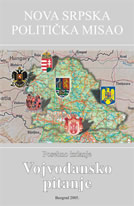| NSPM in English | |||
France and Germany Enter Uncharted Territory |
 |
 |
 |
| недеља, 20. јун 2010. | |
|
(The New York Times, June 8, 2010)
Jean Bizet has done candor a favor. In an article written for a German financial newspaper, the president of the French Senate’s European Affairs Commission says, “It’s useless to try to hide the tensions between France and Germany.” He insists that they are not a couple or tandem, married or otherwise. Cousins, maybe, whom Mr. Bizet delicately describes as having “evolved differently.” This is an honest, fairly official admission pointing toward how Europe got to the nasty place at the edge of crisis it finds itself in now. In truth, the idea of the inevitability and even the quasi-sacred character of the French-German relationship is one of the platitudes that have been shaken with the exposure of some of the European Union’s existential fibs, and the linked fragility of the European Union’s common currency. Normally, reflex would dictate saying everything will be O.K., since postwar France and Germany have taken on for eternity that nothing works in Europe without their close cooperation. Didn’t Helmut Kohl and Jacques Chirac scream at each other, their faces almost touching, and coming close to blows, while arguing in 1996 about the European Central Bank and the degrees of their surrender of national sovereignty — before resolving the same kind of issue that harries the two countries and Europe in 2010? A German official I talked to last week provided a substantially less comforting notion. He said German-French relations and the European Union in general have entered “Neuland,” German for uncharted territory. He believes a European decade has been wasted through a lack of frankness and realism. And yet he feels, regardless, that Germany’s specifications for economic success would continue to serve as all of Europe’s guidebook. That touches on but also skirts the magnitude of what has changed in Europe in a few months’ time. Most significantly, markets have become the daily judges of European policy, probity and sovereign debt. That hardly matches up with past French-German prerogatives. Because E.U. members were caught misrepresenting their finances with the passive acceptance of France and Germany for a decade, no response or solution that is based on a statement of intention rather than a legally binding undertaking — the highly improbable establishment of an independent E.U. agency’s control of national budgets, for example — is likely to lead the markets away from their hair-trigger surveillance of the euro and Europe’s solidity. At the same time, concern has sharpened about Europe’s growth possibilities, and much of it focuses on Germany’s export surpluses, weak banks and bridled domestic consumption. Last week, an official of the Organization for Economic Cooperation and Development questioned whether Germany could, over time, sustain its own economic model. And in what looked like a major, targeted transgression, Finance Minister Christine Lagarde of France has said (twice, for clarity) that Germany’s persistence in holding down wages and failure to stimulate domestic demand created imbalances in Germany’s favor that were impossible for other E.U. members to sustain. Her statement, issued in a period of crisis with the approval of the French president, Nicolas Sarkozy, entered a previously taboo area of French-German power relations: it suggested both that Germany was acting selfishly and that France could cast itself inside the European Union as Europe’s champion of solidarity, and outside as Europe’s foremost consensual representative. Because the German-French tensions magnify Europe’s divisions, and at the same time embody the weaknesses in the European Union that no one can talk away, reconciliation meetings between Mr. Sarkozy and the German chancellor, Angela Merkel, have the appearance of ritual. What might once have seemed like moments of frustration now are often hard exchanges in a context of uncertainty and mistrust. For example, Axel Weber, chief of the German central bank, the Bundesbank, and a subordinate of the European Central Bank’s French president, Jean-Claude Trichet, on the bank’s board of governors (as well as his possible successor), has publicly suggested Mr. Trichet’s recent management of the E.C.B. has overstepped its mandate in favor of traditionally looser French policy inclinations. Considering the previous levels of mutual concealment of reality, the upside here may be a novel measure of French-German directness. In Paris last week, Gerhard Cromme, president of the supervisory boards of the German industrial giants Siemens and ThyssenKrupp, acknowledged in a speech that it was “unforgivable” for the French and Germans not to have taken euro zone rules seriously and “that we must now pay the cost” in the markets. Indeed. But healing will be difficult. French promises of fiscal scrupulousness and budgetary rigor? Reuters pointed out last week that whatever party had led France, it hasn’t produced a balanced budget in over 30 years. And European attempts, spearheaded by Germany, at reining in the markets, including a planned European ratings agency to challenge the “oligarchical” U.S.-based ones? A note to investors last Wednesday from Germany’s Commerzbank argued this would most likely be regarded as an effort “to ensure more favorable” ratings. An even broader question: Might Germany increase imports and domestic demand to stimulate economic growth — in line with admonitions from the Group of 20 summit meeting last year and the International Monetary Fund — although not necessarily by increasing wages, as France says it should? There are no sure signs of it. Intriguingly, Felix Hüfner, an economist who heads the O.E.C.D.’s German desk, told me that “we are confident in our argument Germany’s recent success is based much more on price competitiveness through low wages than quality, and that this is a pattern that can’t be maintained going forward.” For Mrs. Merkel, whose political base is frazzled, taking steps that hint Germany’s economic path is not Europe’s consecrated highway to competitiveness would be to risk portrayal at home as conceding to the inconsistent French. For Mr. Sarkozy, who is likely to seek re-election in 2012, the issue would be whether to try labeling as a personal triumph the creation of something that roughly resembles an E.U. economic or euro zone government — a decades-long French project, rejected over the years by Germany. The temptation looks overpowering, but it would come with Mr. Sarkozy’s knowing that without an official transfer of member states’ budgetary sovereignty to a single Brussels authority, the concept could easily explode in a vote of no confidence from the markets. Of all Europe’s mantras, the desirability and strength of French-German cooperation (if not sole leadership) is still perhaps the most piously chanted. But 2010 is a long way from the days of Charles de Gaulle and Konrad Adenauer. |
Од истог аутора
Остали чланци у рубрици
- Playing With Fire in Ukraine
- Kosovo as a res extra commercium and the alchemy of colonization
- The Balkans XX years after NATO aggression: the case of the Republic of Srpska – past, present and future
- Из архиве - Remarks Before the Foreign Affairs Committee of the European Parliament
- Dysfunction in the Balkans - Can the Post-Yugoslav Settlement Survive?
- Serbia’s latest would-be savior is a modernizer, a strongman - or both
- Why the Ukraine Crisis Is the West’s Fault
- The Ghosts of World War I Circle over Ukraine
- Nato's action plan in Ukraine is right out of Dr Strangelove
- Why Yanukovych Said No to Europe

.jpg)








 As Bickering Becomes Open, France and Germany Enter Uncharted Territory
As Bickering Becomes Open, France and Germany Enter Uncharted Territory










